Why Is a Resume Considered a Living Document
Written By: Michela Pizzia-Aframian
In today’s ever-changing job market, a one-size-fits-all all, static approach to your resume has become a relic of the past. Whereas before people only thought about their resume when it was time to look for a new job, these days, an adaptive and dynamic resume is crucial to seizing the right opportunity.
As the modern workplace changes, so should your resume. Treating it as a living document is vital to yoru career success. In this article, I’ll discuss not only the why but also how to stay on top of your resume so you can stay competitive in this market.
What is a Living Document
A “living document” is a term used to describe any document that is subject to ongoing changes or revisions. It’s never finished forever. This could be anything from a business plan to a company policy guideline, or in our case, a resume.
The concept behind a living document is that it remains relevant and up to date which allows a business, or a person, to stay current and dynamic.
Why Should Your Resume Be a Living Document
Most people don’t think about their resume until they’re actively looking for a new job. It’s easy to understand why: if you have a stable job where you’re progressing and caught up with the day-to-day, why would you think about your resume?
Writing a resume can be a stressful, time-consuming process that may not seem like a priority when you’re content in your current job. That being said, in an era of shifting job markets and an ever-expanding talent pool due to layoffs and restructuring, your resume must adapt to be relevant. Below are some benefits of staying up-to-date with it.
Networking
Networking is one of the best ways to learn about new opportunities. Whether you’re attending a mixer, conference, or trade show, having an up-to-date resume isn’t just a good idea but a strategic move.
You can easily find yourself surrounded by potential connections and career opportunities at a business event, so coming prepared allows you to seize the moment as it presents itself. You never know how short the window of opportunity may be, so it’s always best to be prepared and avoid the rush of any last-minute changes. Be ready to send your resume once you get home.
Self-Assessment
Imposter syndrome is something that many of us experience throughout our careers. It can make us doubt our capabilities and lose sight of our achievements. A resume is the perfect tool to reflect on the accomplishments and forward progressions you’ve made throughout your career.
Similarly, routinely documenting your new responsibilities, skills, and achievements is also a great tool to use when setting future goals and identifying areas of professional development.
Save Time
When the inevitable time comes for you to start your new job search, having an up-to-date resume will prove to be your most time-saving ally. Searching for a new job can be an incredibly taxing and emotionally draining experience. Why not set your future self up for success?
Routinely adding a few lines to your current role or making a change in title is far easier than having to recall potentially years of responsibilities and projects from the past. Staying on top of changes also saves you the time and stress of potentially having to rework the entire document as well.
Whether you’re actively in the job market, passively exploring your options, or content in your current role, maintaining your resume is a smart investment of your time. Being prepared allows you to stay competitive and increases your chances of securing the right job opportunities.
Adapting to Different Opportunities
Depending on the type of roles you’re applying for, you may need to emphasize different skills or experiences. For example, an accountant applying for a role in a manufacturing environment may want to highlight their experience with works-in-progress (WIP), but if they’re applying to a role with a retail company, they may want to highlight experience with rebates.
By regularly updating yoru resume, it allows you to tailor it to the specific requirements of roles you may be applying to. I encourage candidates to make adjustments each time they submit their resume to increase their chances of securing an interview.
Related Article: Targeted Resume Guide
How Often Should You Update Your Resume
In my experience, most people tend not to update their resume unless they’re ready to look for a new job. It could be a proactive decision when someone decides to explore their options, or it could be a reactive response to a layoff or downsizing. Depending on how long someone has been in their current position, it could be a few months to a few years with no updates.
The longer you leave it, the longer and more stressful the resume writing process becomes.
Related Article: How Long Does It Take to Write a Resume [And How to Speed It Up]
Our workflows and responsibilities can change daily or weekly in some companies, so by no means do you need to update your resume for every small reason. Most experts would recommend that every 3 to 6 months you open your resume document and see what recent projects or duties you can update. I personally recommend checking in with yourself at the end of every quarter to see what changes can be made.
I like to ask myself…
What is the next step for me in my career and does my resume showcase my capabilities to manage that workload?
If your goal is to move up into a management position, highlighting projects you may have been the lead on or experience training new hires could be great points to add to your resume.
If your goal is to change departments within your company, highlighting the experience you have working cross-functionally with that team or any cross-training you’ve received could be excellent points to include as well. Doing this exercise will also reveal any professional development areas you may want to work on.
Is the template I’m using appropriate and is my formatting uniform throughout the document?
Template styles and formatting can vary based on what industry you’re in. Finance, for example, tends to favor a black-and-white resume, while a field like graphic design may prefer more colors.
In terms of formatting, I almost always suggest a single-column resume as it’s easier to read. Just be sure your spacing and font size or uniform throughout.
You can access 5 free templates on Optim Careers.
Is there anything on my resume that is no longer relevant and can be removed?
If you’ve beaten previous metrics, this is the perfect time to refresh this information. As your goals and metrics update, so should your resume. Trying to recall it a year or two from now won’t be easy or pleasant.
As your career progresses and you gain more work experience, college programs and extracurricular activities may no longer be relevant on your resume. Take a moment to reflect and see what changes can be made.
How to Keep Your Resume Updated
Whether you decide to make changes every quarter, biannually, or on an as-needed basis, below are some tips to help you get it done.
Review Your Contact Information
If you have recently moved, updated your phone number or email, or made any other significant changes to your contact info, now is a great time to open your resume and quickly modify those details.
Set a Reminder
Some people like to set reminders on their personal calendars and will hold themselves to it. I like to recommend scheduling a meeting with yourself around quarter-close or your performance reviews so that information is fresh and easier to put on paper.
If you’re taking continuing education courses or completing a new license, setting a reminder around your graduation date or course completion date is the perfect way to keep you on track.
Set Clear Goals
When it comes to resumes, there is no one-size-fits-all approach. Different career goals require different approaches. Are you updating your resume for networking or a potential promotion, or do you plan to enter the job market soon? Tailor your resume to your goal and see what changes you can make to make the most impactful document.
What to Update Your Resume
Now that you know the benefits of having an up-to-date resume, when you should make changes, and how they can help you - let’s get into what you need to update.
Summary
If you’ve had any significant changes since your last resume revision, like a switch in industry, years of experience, or job function - be sure to update this section to outline your new goals and background. This section can serve as your introduction to potential employers, so it’s crucial that your initial impression is aligned with your career goals and qualifications.
Current Position
This is arguably the most important section to routinely maintain. Any changes in title, job duties, special projects you’ve worked on, career achievements, or any other major change within your company that has impacted your role should be updated.
These points track your career progression, highlight your capabilities, and show the value you bring not only to your current organization but to any future ones as well. Prospective employers want to know how you’re going to make their company money, save them money, streamline processes, or improve company culture. Be sure your bullet points appropriately articulate those things.
Professional Development
If you’ve completed additional workshops or have received specialized training that is relevant to your industry, you’ll want to keep this section up-to-date. Continued education and training help to showcase your commitment to personal and professional growth, as well as enhance your qualifications as a candidate.
You’ll want to include relevant details like the name of the program or institution that issued it, dates completed, and any relevant skills gained.
Skills
Things can change quickly in today’s professional world, and as employees, we have to adapt as needed. This can mean a change in our workflow, added responsibilities, new software integrations, and more.
Maybe someone from your organization left and you were cross-trained to help a different department, or your company migrated from SAP to Oracle and you had to learn a new system. Whatever the change, be sure to write it down.
Related Article: Skills Vs Experience [How to Write Both in a Resume]
I would also recommend removing any non-relevant skills during this time as well. No one cares that you can Snapchat or Instagram if you work in chemical manufacturing.
Why is a Resume Considered a Living Document Conclusion
Hopefully, this article has helped you see the importance of staying on top of your resume. A resume is more than just a document you need whenever the time comes to seek a new role. Treating your resume as an ever-evolving, living document allows you the flexibility to seize an opportunity at a moment’s notice.
After all, we never know when the next opportunity may present itself or when an unfortunate situation may arise. Having a regularly updated resume is the ace in your back pocket. Whatever the situation is, you’ll know you’re always prepared and ready to put your best foot forward.
By embracing the concept of your resume being a living document, you position yourself as a professional who understands the value of change and is perpetually ready to tackle the ever-changing demands in the modern workplace.
Living Document Resume Recommended Reading
Resume Writing: The Definitive Guide
Contributor: Michela Pizzia-Aframian
Michela has spent the past few years working as a recruiter for the world’s largest specialty finance and accounting recruitment firm. She has worked with dozens of hiring managers to identify top talent and help them build high-performing teams. Today Michela serves as a guest writer for Optim Careers and works with our readers to revise their resumes.

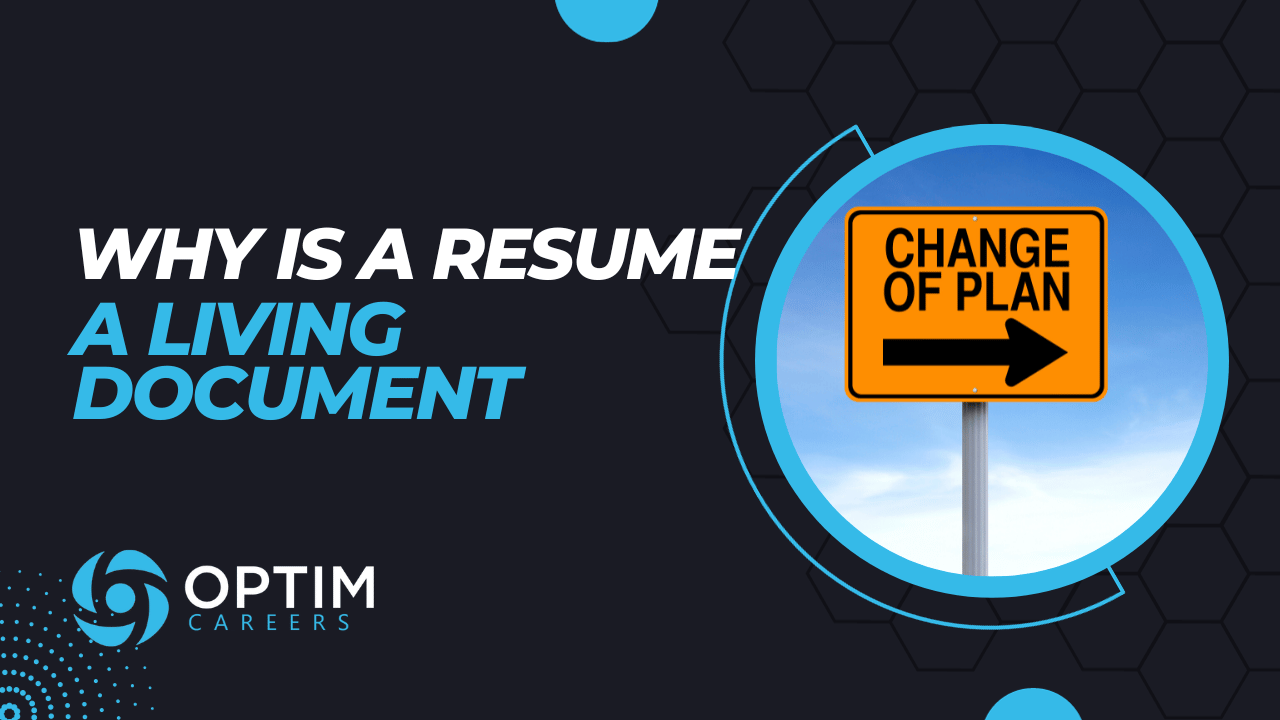
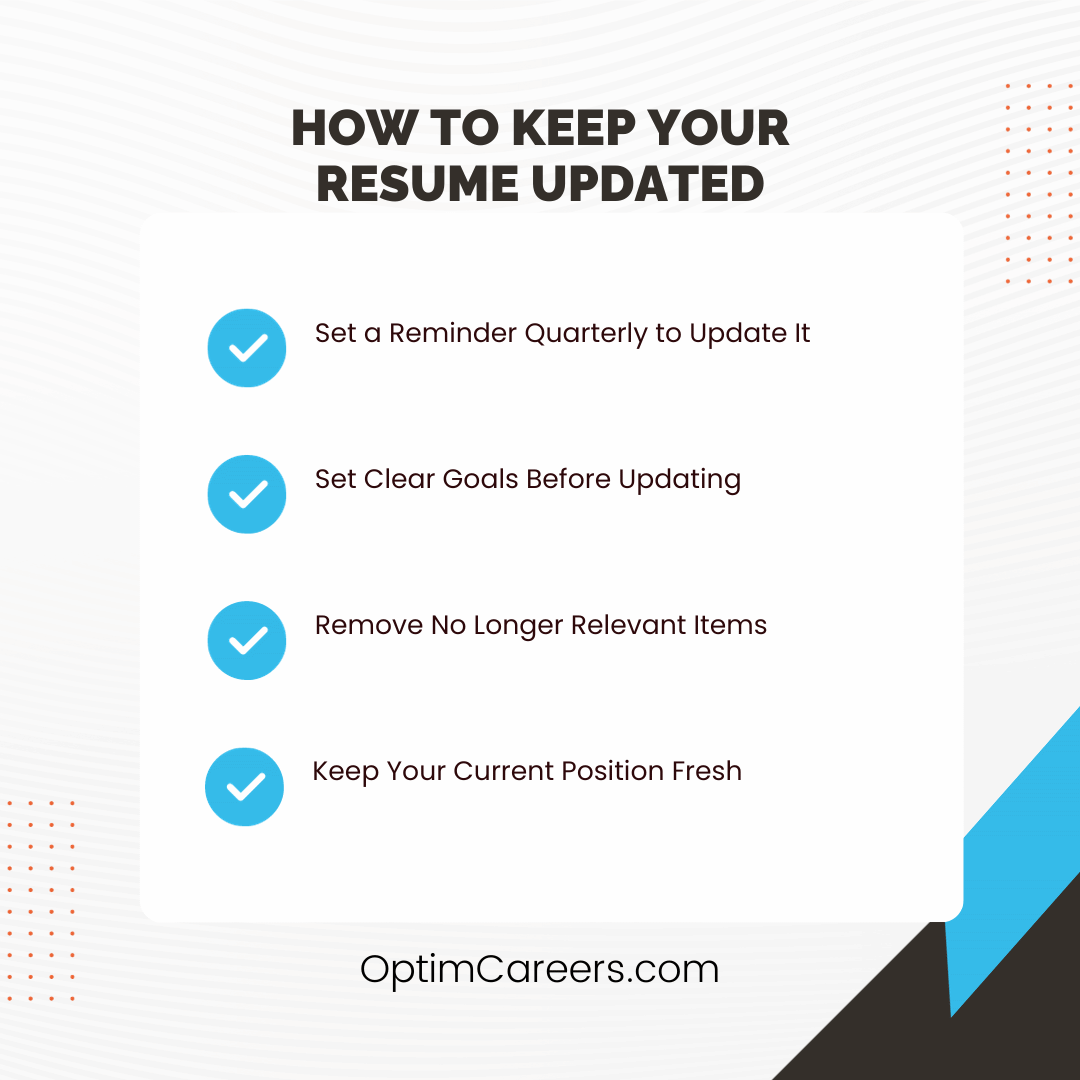



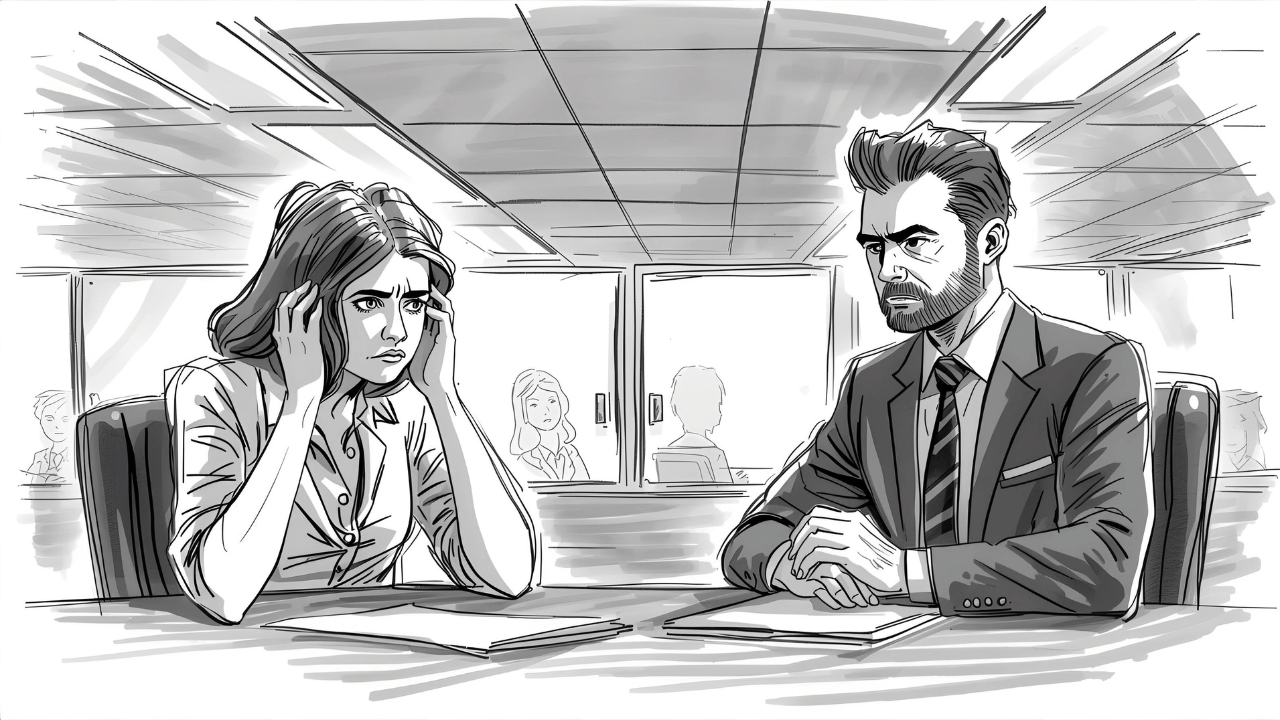

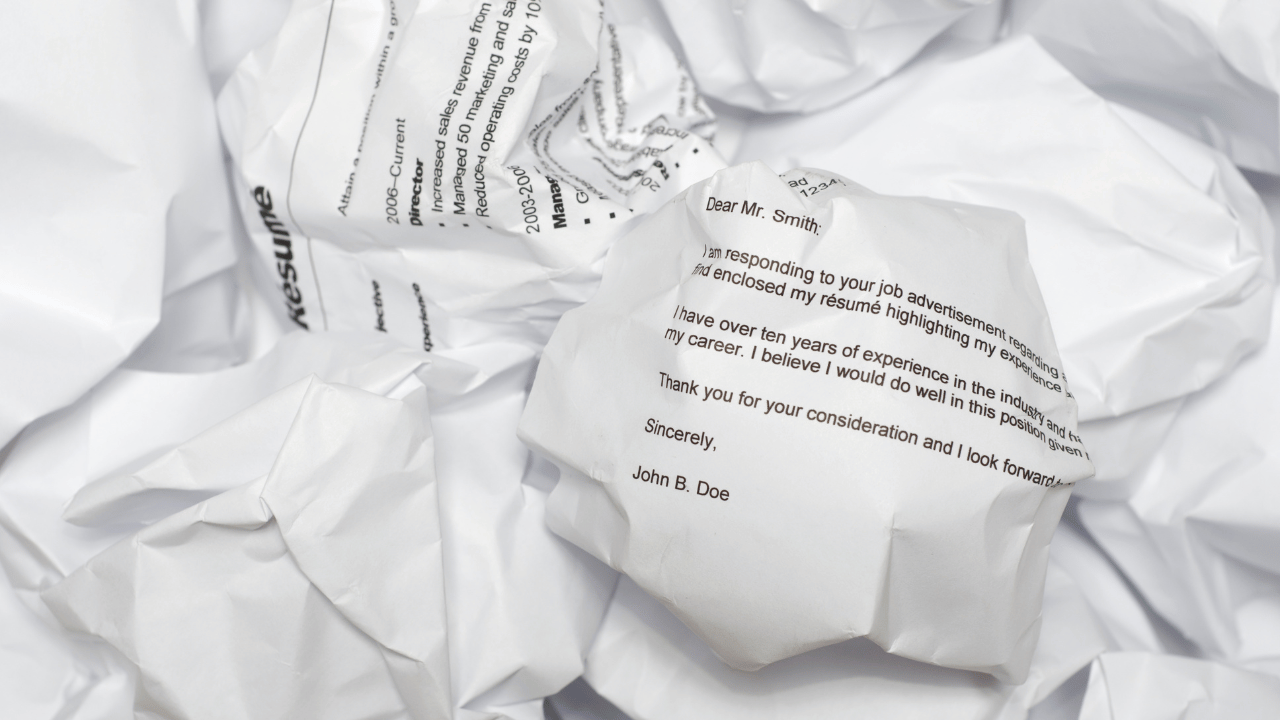

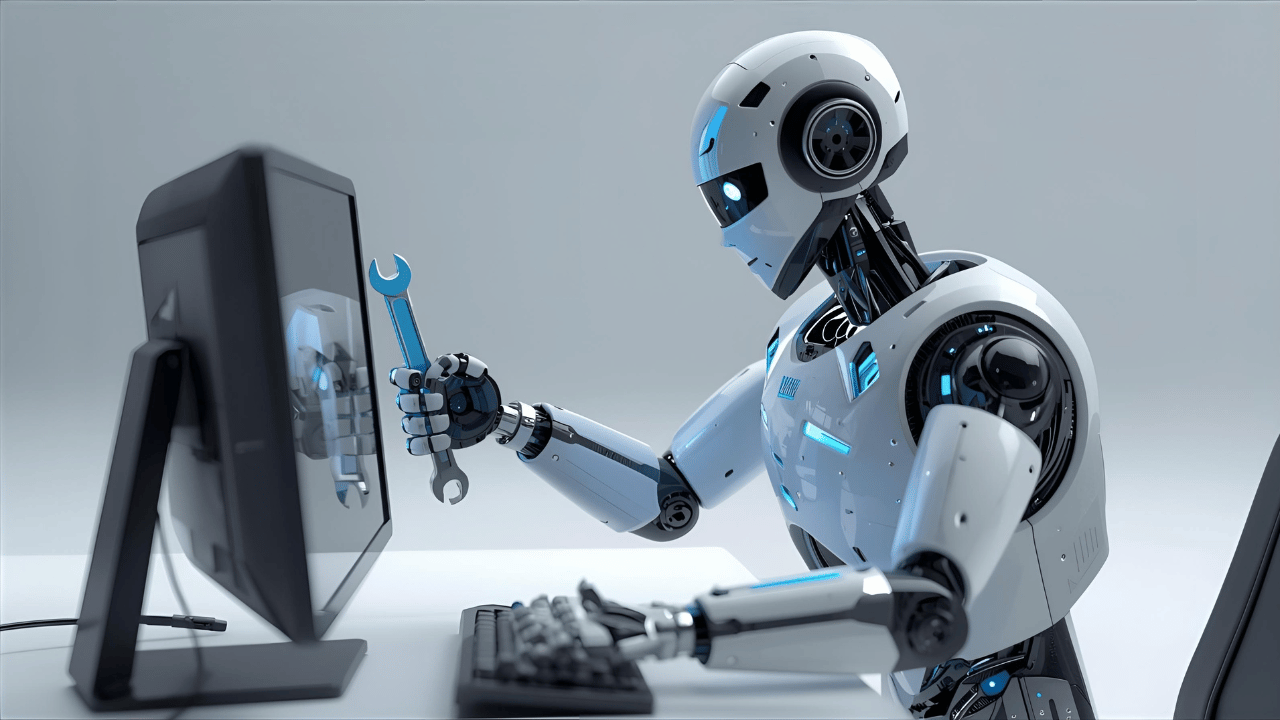


The six-second scan isn't a problem to overcome. It's a feature of an efficient system.